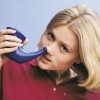Consumer Alert: Neti Pots
 They’re used to rinse the nasal passages with a saline (salt-based) solution, and are popular to treat congested sinuses, colds, and allergies, and to moisten nasal passages exposed to dry indoor air.
They’re used to rinse the nasal passages with a saline (salt-based) solution, and are popular to treat congested sinuses, colds, and allergies, and to moisten nasal passages exposed to dry indoor air.
But, FDA has concerns about the risk of infection when neti pots are used improperly.
Here’s what we know.
- Using tap water that is not filtered, treated, or processed is not safe as a nasal rinse.
- Some tap water contains low levels of bacteria and protozoa, including amoebas, which stay alive in nasal passages and cause potentially serious infections,
The bottom line?
FDA tells us, “Improper use of neti pots may have caused two deaths in 2011 in Louisiana from a rare brain infection that the state health department linked to tap water contaminated with an amoeba called Naegleria fowleri.”
What water is safe to use in nasal rinsing devices?
- Distilled or sterile water, which you can buy in stores
- The label will state “distilled” or “sterile.”
- Boiled and cooled tap water
- Boil for 3 to 5 minutes, and then cool until lukewarm
- Previously boiled water
- Store in a clean, closed container and use it within 24 hours.
- Filtered water
- Water passed through a filter with a pore size of 1 micron or smaller will trap potentially infectious organisms
- CDC has information on selecting these filters, which you can buy from some hardware and discount stores, or online.
- Water passed through a filter with a pore size of 1 micron or smaller will trap potentially infectious organisms
Information on the benefits of using a neti pot is here and here.
8/27/12 11:13 JR